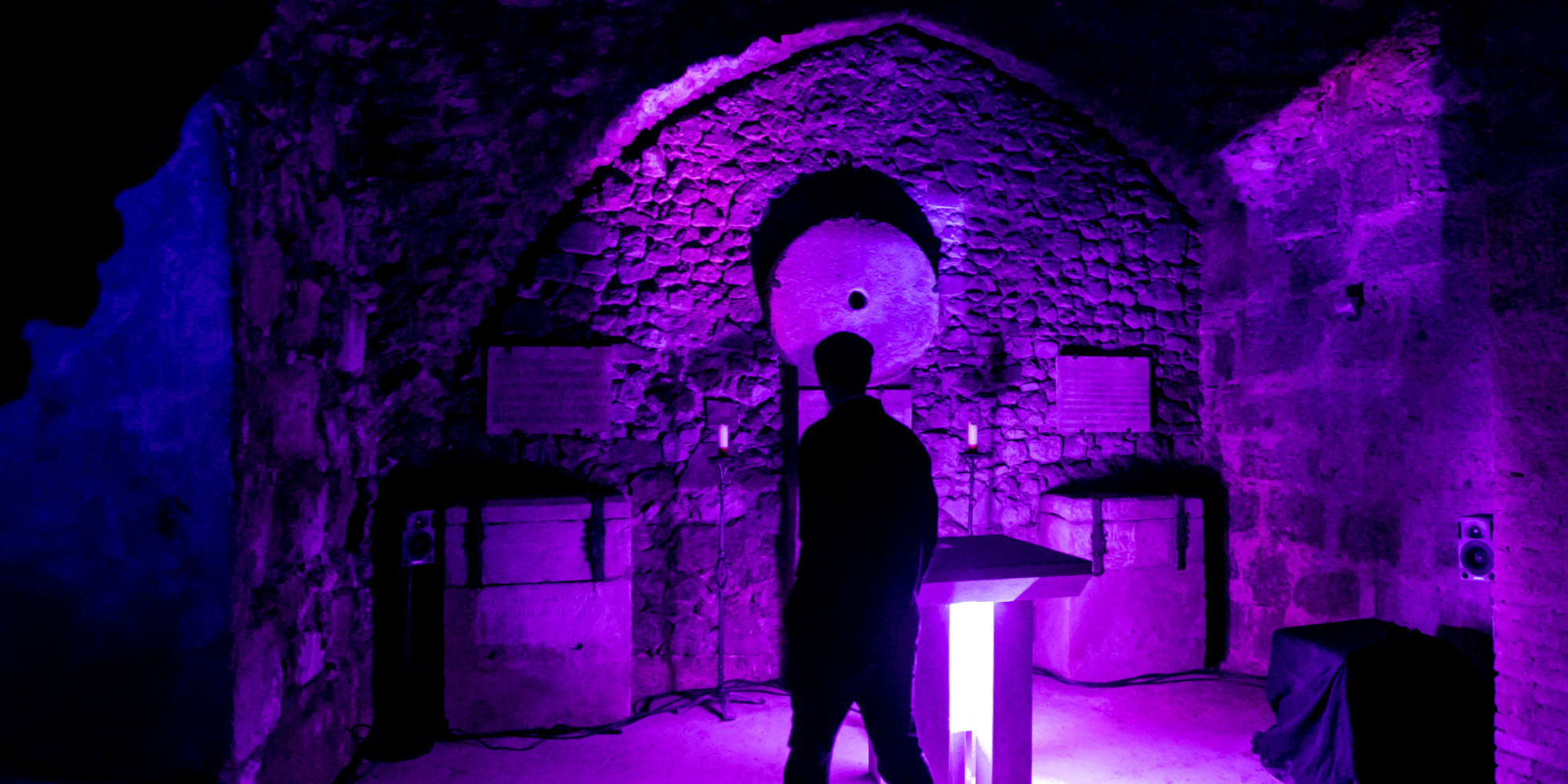La fabrique des monstres ist ein Konzeptalbum generativer Musik, eine Sammlung von „musikalischen Monstern“, die Sample für Sample generative Deep Learning Modelle erforschen, inspiriert von Mary Shelleys Frankenstein und verwendet in Jean François Peyrets gleichnamigem Theaterstück.
Künstliches Leben, und sogar künstliches Leben durch Klangphänomene, ist ein Topos der Kunst. Schon lange vor Mary Shelleys Frankenstein, in Jules Vernes „Le Château des Carpathes“, versucht der Baron de Gortz, seine geliebte Stilla wiederzubeleben, indem er ihre Stimme mittels elektrischer Verfahren nachbildet. Das technische Objekt ist beunruhigend und dämonisch: Es enthält die „Seele“ der verstorbenen Sängerin.
Im Falle von La fabrique des monstres wurde die Forschung von einem bedingungslos generativen Ansatz getragen: Ein Computermodell durchläuft einen (sorgfältig ausgewählten) Lernprozess und produziert in verschiedenen Trainingsphasen eine große Menge an Outputs (ein Verweis auf Samuel Beckett „Krapp‘s Last Tape“). Die Maschine soll keine musikalischen Vorkenntnisse haben: Sie soll „zuhören und lernen“, ohne Informationen über musikalische Kategorien (Genres, Stile…), Beschreibungen (Merkmale, Deskriptoren…) oder Darstellungen (Noten, Akkorde, Partituren…) zu haben.
Die maschinell generierten Ergebnisse werden dann organisiert und mit Hilfe computergestützter Kompositionstechniken erforscht. Das Komponieren besteht daher in erster Linie aus der sorgfältigen Auswahl interessanter Segmente (und hat mehr mit „Entdecken“ als mit „Erfinden“ zu tun), kombiniert mit grundlegenden Montage- und Mischtechniken. Dahinter stecken zwei Ziele: einerseits den Lernprozess aufzudecken (metaphorisch das Lernen, das Frankensteins Monster in den zentralen Kapiteln von Mary Shelleys Roman durchläuft); andererseits führt der Einsatz der Maschine zu einer wahrnehmbaren Grauzone zwischen dem, was für die HörerInnen als „maschinell gemacht“ und dem, was als „menschlich gemacht“ erscheint – und damit die wichtige Frage aufwirft, „wer hat was geschrieben“.
Projekt Credits:
- Daniele Ghisi, Robin Meier
- Commissioned by IRCAM-Centre Pompidou
- Used, in part, in “La fabrique de monstres,” a theatrical piece by Jean-François Peyret with the help of Philippe Esling, Léopold Créstel, Mattia Bergomi, Giorgio Presti, NaMi Lab
- Obtained via a modified version of the SampleRNN model (Soroush Mehri et al.), followed by a selection of results and a rough montage.
Website:
- Das Album ist frei verfügbar auf Soundcloud: https://soundcloud.com/lafabriquedesmonstres
Biografien:
Born in Italy in 1984, Daniele Ghisi studied composition with Stefano Gervasoni and Mathematics at the University of Milano Bicocca. Between 2008 and 2011 he followed Ircam’s Cursus de composition et d’informatique musicale. From 2009-2010 he was composer in residence at the Akademie der Künste in Berlin, 2011-2012 member of the Académie de France à Madrid – Casa de Velázquez. In 2012 he was a research composer at Ircam. From 2013-2014, research assistant at the Haute École de Musique in Geneva. In 2015 he was composer in residence with the Divertimento Ensemble in Milan, recording his first monographic CD (“Geografie”). In 2017 he obtained his PhD in composition and music research at Ircam/UPMC/Sorbonne. He is edited by Ricordi and he currently teaches Electroacoustic Composition at the Conservatory of Genova. He is co-founder of the /nu/thing collective (http://www.nuthing.eu) and co-creator of the project “bach: automated composer’s helper,” a real-time computer-assisted composition library (http://www.bachproject.net).
Artist and composer Robin Meier explores the emergence of natural and artificial intelligence and the role of humans in a world of machines. Meier tries to make sense of these questions through musical compositions and installations. Referred to as “Artist of the future” (le Monde), “Maestro of the swarm” (Nature) or simply “pathetic” (Vimeo) his works have been shown internationally, in institutions such as Palais de Tokyo, FIAC and Museum of Modern Art in Paris, Art Basel, Switzerland, the 11th Shanghai Biennale, Arsenal Contemporary New York City or the Broad Art Museum in East Lansing, Michigan. Robin Meier is a longtime collaborator at IRCAM / Centre Pompidou (Paris) and Fellow of the Istituto Svizzero di Roma (2018/2019).


